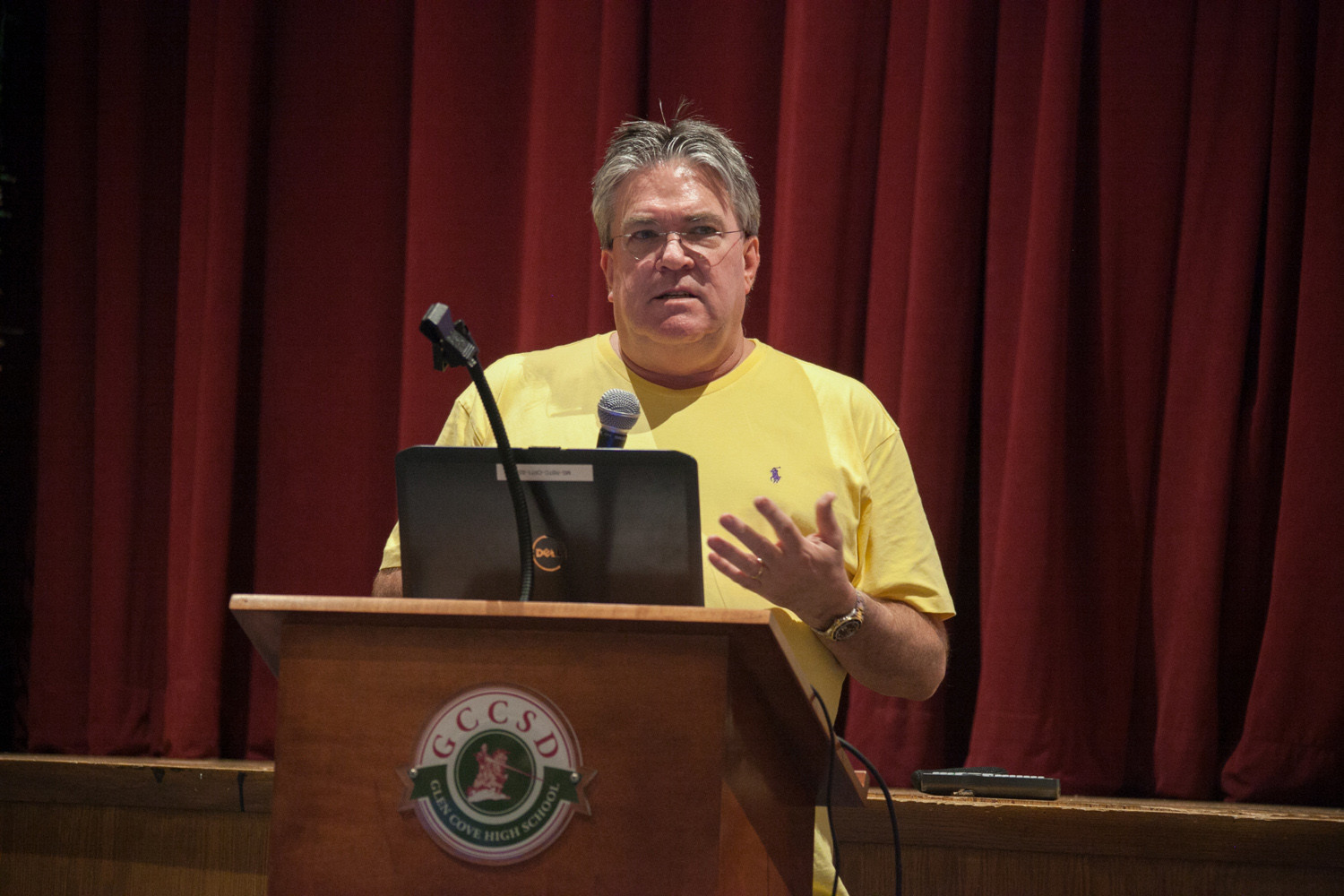Glen Cove gets a dose of drug education
Dewey speaks to students about substance abuse
Perhaps the most gasp-inducing information that Dr. Stephen Dewey, an addiction psychiatrist at Northwell Health, shared with Glen Cove students during a presentation on substance abuse was that he had seen alcoholic patients as young as 7.
With the motto, “Education is the best form of crime prevention,” and in response to the opioid and heroin crisis that continues to plague Long Island, City Court Judge Richard McCord approached the school board with the idea of an educational program. “I see a lot of substance-abuse cases come through my court, and it’s from young people in particular, from all types of backgrounds,” McCord said. “I just thought it was appropriate that I try to have an initiative where we could reach out to the community and try to educate the students … and educate their parents.”
Schools Superintendent Dr. Maria Rianna and Assistant Superintendent Dr. Michael Israel had seen one of Dewey’s presentations in another district, and suggested that he bring it to Glen Cove. “I think he has once again given students and parents and community members insightful information that will help them to best support their children as well as their family members when it comes to addictive behaviors and how to deal with them,” Rianna said. “And how important it is to understand this information in order to prevent the addiction.”
High school students were treated to one of Dewey’s unique presentations on Oct. 17, and Finley Middle School students and community members attended two presentations on Oct. 24.
Dewey is a researcher and professor at Northwell’s Feinstein Institute for Medical Research in Glen Cove, specializing in neuroscience and molecular imaging. His presentations, which focus on the effects of addictive substances on the brain, are known across Long Island.
But instead of the usual “Just say no” rhetoric, Dewey displays positron emission tomography, or PET, images and CT scans of normal adolescent brains next to images of brains that have been exposed to addictive substances. They clearly show the physiological effects of drugs and alcohol with vivid colors.
The substances Dewey touched on included caffeine, nicotine, alcohol, marijuana, methamphetamine, cocaine, heroin, opioids and cigarettes and e-cigarettes.
Using the PET and CT scans, Dewey demonstrated how the brain’s pre-frontal cortex stops growing when exposed to marijuana, and how excessive alcohol consumption changes the brain to recognize “drunk” as “normal.” He explained how e-cigarettes may subject the lungs to toxic metals by passing the vapor through hot metal coils, and how cocaine use may lead to Parkinson’s disease by depleting the chemical dopamine in the brain.
He also shared photos of children and adults before and after drug abuse.
“Our students really got a lot out of it, from the feedback they gave us,” Rianna said. She added that the district is interested in hosting another presentation by Dewey in the future.
McCord said he hoped to return with a similar program, this one from the perspective of police officers and first responders. “With students, they have to know the dangers of using it even once,” he said. “And the parents have to know the red flags.”

 45.0°,
Partly Cloudy
45.0°,
Partly Cloudy 




